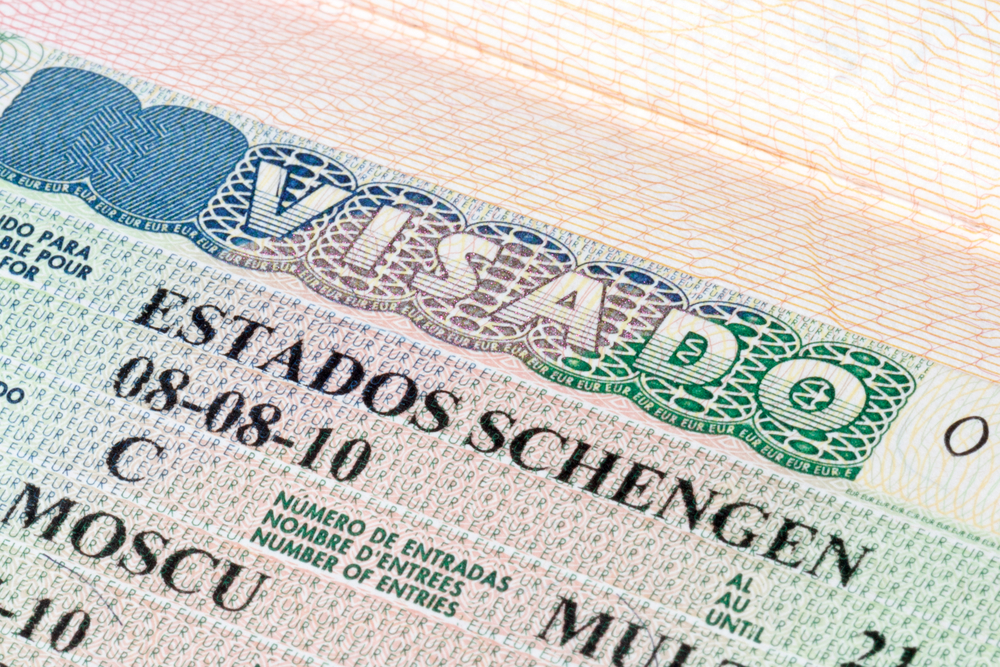Spanish embassies rejected 134,394 applications in 2017, sharing in this way a portion of 10% of worldwide Schengen visa denials for the year, SchengenVisaInfo.com reports.
The Spanish embassies collected exactly 1,624,276 uniform visa applications in 2017. Meanwhile, in correlation to the total applications at their embassies, the number of rejected visas shared 14.9% of the total applications load filed at the Spanish embassies during the past year.
Russians and Chinese maintained the majority of applicants at the Spanish embassies. Last year, 466,959 Russians were seeking to get a Schengen visa at Spain’s consulates. In turn, 460,244 of them were issued a uniform Schengen visa. The majority (90.9%) was granted a MEV visa.
The table below shows the top five nationalities that issued most Schengen visa applications at the Spanish embassies:
| The country where Schengen consulate is located | Uniform visa applications | Issued uniform visas (including MEV visas) | Share of MEV visas | Issued LTV visas | Not issued uniform visas |
| Russia | 466,959 | 460,244 | 90.9% | 52 | 4,644 |
| China | 87,828 | 86,352 | 1.2% | 42 | 1,273 |
| China | 85,070 | 84,003 | 1.8% | 6 | 705 |
| Morocco | 57,007 | 51,675 | 49.5% | 178 | 4,220 |
| Morocco | 56,432 | 52,287 | 33.0% | 125 | 2,717 |
On a wide scale perspective, SchengenVisaInfo noted that the African applicants were mostly subject to visa denials. For example, over a quarter (26.3%) of Algerians that applied for a Schengen visa in the Spanish consulate located in the capital last year were rejected. The other Spanish consulate located in the city of Oran rejected a portion of 33.2% applications. Meanwhile, almost 7,000 applicants were rejected at Spanish consulates in Morocco in 2017.
SchengenVisaInfo reports that the reasoning behind this occurrence can be the immigration crisis that the region has experienced in recent years. Probably their stringent Schengen visa restrictions for African applicants are an indication of with their efforts to deter the increased flux of illegal immigration.
Spain’s Law on Visas for Entrepreneurs
As visas pertaining to foreign entrepreneurs looking to enter Spain were not specifically included in the above report, it is worthy to note that Spain does have an “Entrepreneurs Law” for visas.
Non EU nationals who intend to develop an innovative business or entrepreneurial activity with special economic interest for Spain may apply for a visa or residence authorization for entrepreneurs.
Candidates who are abroad must apply for a one-year residence visa while candidates who are legally in Spain, i.e. who have a residence or stay permit or entrepreneur visa, must apply for a two-year residence authorization.
- Not be in Spain in an irregular situation.
- Be over 18 years of age.
- Have no criminal record in Spain or in the countries where they have resided for the past five years, for offenses defined in the relevant Spanish legislation.
- Not be subject to an alert issued for the purposes of refusing entry in the territorial space of countries with which Spain has signed an agreement in this regard.
- Have a public or private health insurance policy with an insurance company authorised to operate in Spain.
- Have sufficient financial resources for themselves and their families during their residence in Spain.
- Have paid the visa or authorization processing fee.
For more information on how to apply for a Spanish Entrepreneurial Visa, Tech.eu did a great write-up on the process here.








